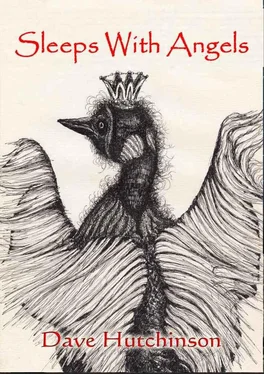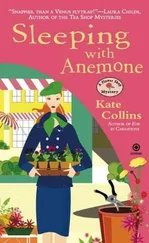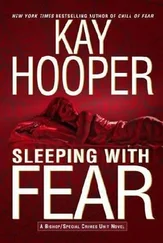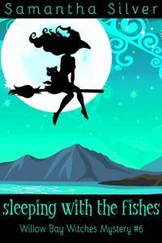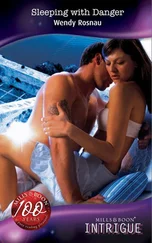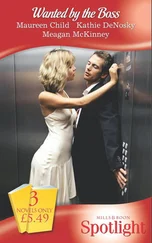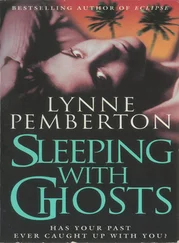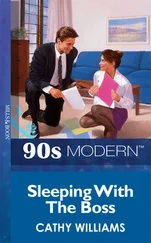Rowland knew all this, of course; he kept a careful watch on his graduates, ranking them according to how bright they were and how handy they were likely to be in an emergency. Some of the more forward-thinking of his former students had attempted to eliminate themselves from the equation by moving to Canada, Australia and the United States, but I had wound up not only living in London but with increasing amounts of free time on my hands, which was why he had been on my doorstep this morning, “I mean, it’s not as if you have anything better to do today, is it, Jim..?”
About half an hour west of Stonehenge, we encountered some complicated business involving junctions and roundabouts and traffic lights which Rowland navigated me through by saying, “Left,” “Right” and “Straight on” at the relevant points. He wasn’t consulting a road map at the time, which might have been faintly scary, but if he was the world’s worst passenger Rowland was at least a navigator next to none. The rain eased up, the clouds parted, and Rowland kept us on the road. None of this was particularly surprising. He knew where he wanted to go, and nothing was going to get in his way.
When I first met Rowland he had been in his late forties, a short, stocky man with stumpy legs, long fair hair and dirt under his fingernails. He’d walked into the lecture room at the university, looked at the pile of books on the table before him, and then out and up at us, sitting there with our pens poised waiting to write down everything he said.
What he said was, “Put your bloody pens down and listen for a minute.”
We put our pens down. Well, some of us did. I noticed some people making surreptitious notes, as if they thought he was trying to trick us.
He went on, “At some point in the next three years, you’re going to be holding in your hands something that was made a hundred, two hundred, three hundred years after the birth of Christ. Some of you will find the remains of someone who died hundreds of years before Christ was born. These were real people. As real as you or me. What they were not is just like us. They didn’t think like us, and over the next three years I hope you’re going to learn why.”
The main thesis of Rowland’s life was that historians down the ages had made a single glaring mistake: they had assumed that the people they had written about were just like them, only without modern conveniences. It was a bigotry which had been reinforced by countless movies about the Romans and the Egyptians; modern screenwriters had written scripts about gladiators or slaves or whatever, and the roles they had written had been acted by modern actors for modern audiences. The characters all had modern motivations, they spoke recognisably modern English, and everyone who watched those films could identify with them.
Wrong, said Rowland. We could no more identify with a Second Century Roman gladiator or a Bronze Age artisan than we could identify with a squid. Nobody would want to go and see a film that accurately depicted the way those people really saw the world, we just couldn’t get our heads around it. They were not like us, and we were not like them. It all had to do with evolution, with the way the brain learned to interact with its environment. The Bronze Age peoples were only a few generations away from the development of language itself, and they had not yet learned to identify with the ‘thought I ,’ said Rowland. They hadn’t yet figured out that if you had an idea, it came from you . They simply assumed it was the word of God. Music was an aspect of divinity, a magical thing. The Celts believed, in the same way we believe that when we push a button on a pedestrian crossing the little red man will eventually turn green and let us cross the road, that gods lived in the rocks and the rivers and the streams. It was real , not even an article of faith. We couldn’t imagine how they saw their world of gods and goddesses. It was simply beyond us. They were not like us .
I was hooked. This wasn’t archaeology the way I had imagined it. Rowland wasn’t talking about digging up the artefacts and remains of people who had been just like us, apart from the obvious handicaps of not having electricity and computers and Woody Allen films. He was describing a discipline which ought, if it were done properly, to be about examining truly alien cultures and trying to understand them. I loved it. From then on, right up until that moment in the trench outside Cirencester, I was a wild-eyed acolyte. And Rowland, with his patient predator’s eye, marked me down as a useful future asset.
“Here. Take a left here. No, not here , past this junction. Here .”
I sighed and turned the wheel. The car bumped off the road and onto a narrow track between two fields. The track was muddy from the passage of many vehicles and the recent rain, and it was dotted with potholes full of water. I felt the car’s suspension bottom a couple of times, and thought I heard the exhaust scrape a groove in the ground.
We were just outside a village called Stafford Bishop, about ten miles east and north of Gloucester, not far from the part of the Cotswold Hills which had once been dubbed the ‘Haute Cotswolds’ because of its wealthy inhabitants. Where we were was not haute anything. It was a big muddy field surrounded by scrappy hedges and the occasional tree. The ruts in the track fought the steering wheel and it was hard to keep the car from bumping off into the field. Not that it mattered, particularly. It looked as if the farmer to whom the field belonged had been growing mainly weeds and grass. Maybe there was an EU weeds and grass subsidy you could claim.
Rowland was getting excited, leaning forward against his seatbelt and looking out through the windscreen. “He’s here,’’ he kept saying. “I can feel him. He’s here.”
At the end of the track was a little collection of caravans and mobile homes belonging to Bristol University and a couple of West Country archaeological groups. I parked us beside one of the caravans and we got out and stood beside the car. The air smelled wet and fresh and earthy. I lit a cigarette and rubbed my face and wondered how my life had managed to come so far off its tracks as to deliver me here today.
Half the field had been dug up. A little yellow excavator sat on its caterpillar tracks off to one side, next to a huge pile of earth. Beyond it was an enormous shallow pit, crisscrossed with duckboards and dotted with markers, in which dozens of people were moving slowly and with great purpose, scraping away at the dirt exposed by the bucket of the excavator. One of the figures in the excavation, noticing our arrival, had climbed out of the pit and was coming towards us. My heart began to sink all over again.
Lew King had been a year below me at the University, a rotund little Yorkshireman already starting to go bald. Where I had been galvanised by Rowland’s vision of alien cultures buried beneath our feet, Lew had bought into it entirely. He worshipped Rowland. He had picked up Rowland’s torch when Rowland retired five years ago, although in all the important respects Rowland had never retired at all.
“Professor Gibson,” Lew said as he approached us, hand outstretched. “Welcome. Such a great day.”
“Doctor King,” Rowland said solemnly, shaking his hand. He turned and indicated me. “You’ll remember Jim.”
Lew looked at me and I looked at Lew. No hearty handshakes for Lew and me. We regarded each other the way two attack dogs might regard each other. For a long time I had been Rowland’s spear-carrier, in spite of my disillusionment about the fieldwork. When I had betrayed the faith, Lew had picked up the spear, had become the New Improved Jim. I was conscious of looking at a faster, more streamlined version of myself, the tool which Rowland had shaped to use as the front end of his obsession, the person who actually dug things up. The digging life had slimmed Lew down; he was whiplash thin now, and his skin was tanned like old leather from his years spent out in the wind and the rain and the sun as Rowland’s avatar. His hair was gone completely, and he was wearing a huge pair of wire-framed John Lennon spectacles. His clothes were saturated with mud and dirt, and he was holding a filthy baseball cap in one hand.
Читать дальше
